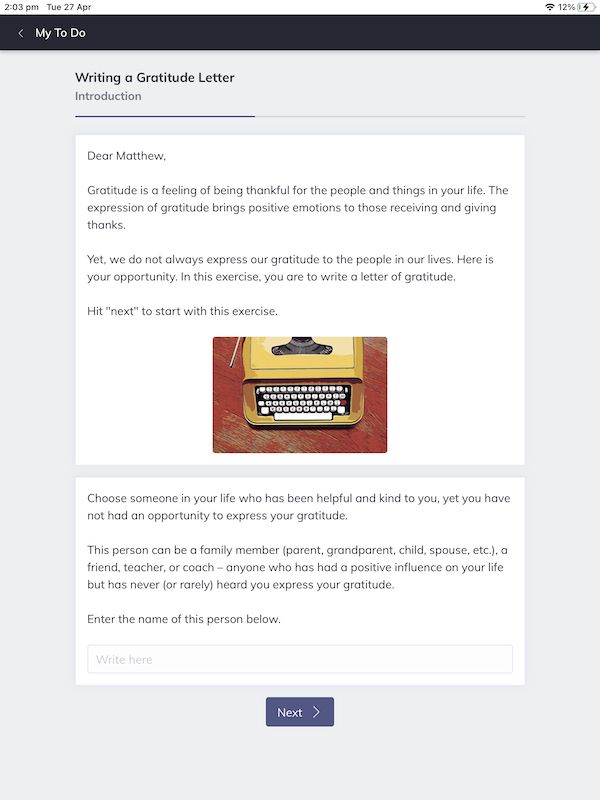Positive Psychology Coaching vs. Life Coaching: A Comparison
 As coaches, we know how transformative the coaching experience can be for clients.
As coaches, we know how transformative the coaching experience can be for clients.
Many people who seek coaching usually have some idea of an area of life they want help with, but it’s through coaching that they begin to gain a deeper understanding of all the different areas in life and how they are all connected.
Each person holds so much power within themselves that needs to be let out. Sometimes they just need a little nudge, a little direction, a little support, a little coaching, and the greatest things can happen.
Pete Carroll
One of the main challenges for everyone involved in the coaching journey is choosing the right coaching model to follow. In most instances, coaches use multiple models and various resources to create a coaching experience that’s highly tailored and suited to the individual.
Positive psychology coaching and life coaching are two such models. While it’s easy to assume that the two are the same, there are some fundamental differences.
Before you read on, we thought you might like to download our three Positive Psychology Exercises for free. These science-based exercises explore fundamental aspects of positive psychology, including strengths, values, and self-compassion, and will give you the tools to enhance the wellbeing of your clients, students, or employees.
This Article Contains:
- Coaching: A Definition
- What Is the Difference Between Coaching and Therapy?
- 7 Benefits of Coaching
- What Is Positive Psychology Coaching?
- 3 Positive Psychology Coaching Resources
- What Is Life Coaching?
- 3 Life Coaching Resources
- Digital Tools for Positive Psychology and Life Coaches
- Positive Psychology Coaching and Life Coaching: Comparing the Two
- Which Method of Coaching Should You Use?
- 5 Questions to Ask When Choosing a Coach
- A Take-Home Message
- References
Coaching: A Definition
Before we dive into exploring these two models in more detail, it’s helpful to have a more general understanding and formalized definition of coaching.
Coaching has primarily been associated with sports, and most of us are used to hearing the term ‘coach’ used in that context. But coaches and coaching have a significant role to play in other areas of our communities too.
Coaching is essentially a partnership between the coach and their client, working together to help the client achieve their goals, be they in sports, business, their career, or other areas of life.
A couple of popular definitions of coaching include the following:
- “It is helping them learn rather than teaching them” (Gallwey, 1986)
- “Unlocking a person’s potential to maximize their performance” (Whitmore, 2002)
Three things coaching is:
- Help and guidance for a person seeking a change in the way they wish and supporting them to go in the direction they want
- Supporting a person to become who they want to be at every level
- Constructively building personal awareness to empower choice and lead to positive change
Three things coaching is not:
- A diagnosis or labeling process for mental or emotional health disorders
- One person (the coach) telling another person (the client) what to do, how to do it, or how they should live their life
- A prescription-based or one-size-fits-all mentality that doesn’t allow room for points of difference or individual experience
What Is the Difference Between Coaching and Therapy?
Clients come to therapy or coaching wanting to change, and both professions assume that significant change will occur over time.
Hayden & Whitworth (1998)
When considering coaching, it is important to be aware that it is very separate from therapy and counseling.
Although there are a lot of similarities and crossovers, they are very distinct forms of support. Both have the ultimate goal to support their client to overcome barriers and move toward core goals and authentic living, but key differences include the following:
- A clinical therapist or counselor requires professional degrees, qualifications, and accreditations. You must also obtain registration with professional bodies and relevant professional licenses to practice. It is a more highly skilled profession than coaching (though coaching can be just as valuable to the right individual).
- Therapy tends to reflect on past experiences and how they influence the present. Coaching is more focused on the here and now, supporting events and behaviors occurring in the present to generate positive change for the future (Robbins Research International, n.d.).
- Therapy can be less outcome focused, with an emphasis on inner subconscious and conscious personal development, to help the client overcome challenges and barriers in life (Stephens, 2018). Coaching tends to focus on more attainable and measurable goals within the coaching process, and clients are working toward tangible outcomes.
- Therapy can take place over many years, for as long as the individual feels they require it or for as long as the relationship is helping them. Coaching tends to be shorter term due to the outcome focus of the relationship (Stephens, 2018).
Knowing these core differences allows us to make fundamental decisions about which pathway of support is the best for us or the clients we work with.
Being able to provide clients with the advice that therapy, counseling, or mentoring might be a more beneficial route for support is a vital part of providing quality coaching guidance.
7 Benefits of Coaching

Often, we can’t do this alone, and having someone else equipped with the right tools and exercises to help us get there can lead to great results.
Coaching also offers clients the opportunity to work from a structure or framework, which can help them stay focused and on track, and build the commitment they need to persevere toward end objectives. Having a reliable coach to help keep you on track is also highly beneficial.
Below are seven benefits associated with coaching:
- Improvement in desired performance and goals
- Increased openness to personal development
- Developed ability to identify positive solutions
- A greater sense of ownership over self
- Improved self-awareness of strengths and weaknesses
- Improvement in a specific area of life or set of behaviors
- Greater clarity about desired goals and objectives
Coaching for happiness: the science of positive psychology
What Is Positive Psychology Coaching?
Positive psychology aims to explore and identify the what, where, how, and why of positivity for individual success in order to flourish.
It doesn’t seek to remove negative experiences from life, but instead aims to bring balance in life and help individuals understand how negative experiences can serve a purpose in helping us to flourish.
Positive psychology is backed by a considerable body of professional research, and a coaching model based on positive psychology concepts can offer a structured and reliable approach to supporting individuals achieve their goals.
Positive psychology coaching (PPC) is a scientifically rooted approach to helping clients increase well-being, enhance and apply strengths, improve performance, and achieve valued goals. At the core of PPC is a belief in the power of science to elucidate the best [methods for development].
Kauffman, Boniwell, and Silberman (2010)
Within positive psychology, there is a multitude of assessments, resources, tools, and feedback models that can help a coach to build a highly tailored, structured coaching journey that is ultimately backed up with measurable evidence.
As mentioned, exploring negative experiences is a core component of positive psychology. Developing an understanding of negative thoughts and behaviors versus positive thoughts and behaviors, and understanding which are needed to achieve goals and objectives, is at the heart of positive psychology coaching.
Positive psychology coaching also helps clients explore their values, strengths, weaknesses, resilience, and resourcefulness (Kauffman et al., 2010). Backed with the tools and resources developed through positive psychology, coaching that utilizes this model can quickly help clients achieve results.
Positive psychology coaches can offer precision around specific goals and their related areas to help clients become clearer about what changes they might need to make to achieve desired objectives.
3 Positive Psychology Coaching Resources

These resources can be used in one-to-one sessions, group workshops, or as self-led homework.
Below are three positive psychology coaching tools and resources to help clients further explore their goals, values, strengths, and weaknesses.
1. The positivity ratio
The positivity ratio (Fredrickson, 2005) is a simple measurement tool aimed at measuring an individual’s positivity and negativity ratios so they can learn what adjustments are needed to flourish.
3P (3 * Positivity) : N (1 * Negativity) = Flourishing
For an individual to flourish, they need to regularly think and feel positive at least three times as much as they feel negative.
The positivity ratio has been researched thoroughly, and although it is not without its critiques, it is still a great reflection tool to use with clients in positive psychology coaching to encourage discussion and consider positive and negative feelings.
2. Active constructive responding
We all have different ways of responding within different scenarios, especially when it comes to responding to good news from other people in our lives.
Research has shown that couples who were able to respond in a particular way to each other’s good news and offer proactive support in the face of positive things, as well as negative challenges, had stronger relationships overall (Gable, Reis, & Downey, 2003). The researchers called this active constructive responding (ACR).
ACR is a fantastic resource for positive psychology coaches as a way to help clients strengthen their personal relationships and deepen their sense of positive social connections. ACR can also be used to talk about the self; instead of dismissing good things when they happen and getting stuck focusing on the bad, utilizing ACR can create a more positive framework for individuals to think about themselves and others.
ACR involves engaging with the other person sharing their news to capitalize on the experience using the following steps:
- Sharing their excitement and happiness: “I’m so glad you told me about this, I’m very excited for you.”
- Asking questions to encourage further discussion about the news: “When did this happen?” and “How did you feel when you first heard the news?”
- Reaffirming you feel positive and happy for them: “You’ve been waiting for this for a while, so I feel really happy it has happened for you.”
3. Best Possible Future Self Exercise
The Best Possible Future Self (Sheldon & Lyubomirsky, 2006) is a popular exercise used within positive psychology coaching, and it can be especially beneficial with clients who feel a little vague about how they want to improve or change to start leading a more authentic or flourishing life.
This exercise engages clients to visualize and write about how they envision the very best version of themselves. It is a writing exercise, and participants are encouraged to reflect and consider the following:
- A version of their best possible self who they are interested in meeting and being.
- Vivid details about having succeeded in accomplishing their life goals. These need to be realistic, positive, and attainable. What does this look like? How do they feel? Who else shares this experience with them?
- The specific character strengths that this best future self embodies.
- The specific character strengths required to begin moving toward becoming that best possible future self.
This exercise has been proven to help individuals enhance their self-regulation, as it creates an opportunity for them to learn and understand what drives them, their emotional reactions, and the structure of their priorities (Omodei & Wearing, 1990).
Within positive psychology coaching, this exercise can be utilized throughout a coaching journey for the client to add to and modify as they develop further clarity about their goals and what their best future self might look like.
What Is Life Coaching?

You might even go so far as to call this life coaching, and in a more formalized way, that’s mostly what a life coach does.
Life coaching aims to offer support and guidance to those who feel they are at a crossroads and in need of some extra help to move their life forward in positive and constructive ways. This could be for professional or personal reasons.
Although our friends and relatives can be excellent resources of support, sometimes they are not equipped enough to support us objectively and may lack the resources necessary to help push us in a new direction.
A life coach offers proactive, professional support from a more objective, third-party perspective. Life coaching as a model draws from numerous other approaches, including psychology, counseling, and sociology, as well as business leadership where appropriate.
Life coaching seeks to help individuals break negative cycles of behavior, become more decisive, and ultimately go after the things they want in life. Life coaches can be more generalist, offering support to a range of clients with different goals, or they might be more specialized. You will often find life coaches who focus primarily on one topic such as business, relationships, career progression, family connections, motivation, or creativity.
3 Life Coaching Resources

Each resource focuses on a specific topic relevant to clients’ specific circumstances or desired goals. Below are three commonly used resources.
1. Personal discovery questions
A compelling resource for any coaching relationship, discovery questions are a great tool in life coaching, especially when first getting to know and understand a client, encouraging them to reflect on their self-awareness.
Personal discovery questions are in-depth and open-ended questions that help clients explore specific topics to develop self-learning. They also help the coach gather information to make decisions about the coach–client relationship.
Some examples of personal discovery questions include:
- What are my most important values?
- How am I living or not living according to those values?
- What are my most important needs?
- How are my current circumstances meeting or not meeting those needs?
- How do I feel about my life’s purpose?
- What am I doing that makes me feel I am meeting my purpose?
- What current behaviors, thoughts, or activities prevent me from fulfilling my life’s purpose?
- What three words do I feel describe me best?
- How do I feel about the pace of my life?
- What things do I feel I should have achieved by now?
2. Gratitude journaling
Journaling is another excellent resource within life coaching. It encourages clients to reflect regularly, and it can create new conversational points in one-to-one or group sessions.
Journaling works best when clients are given a focus for the journal, rather than writing free-form about just anything. Creating a focus can help clients feel more productive and understand what the journal is aiming to achieve. One key area of focus many life coaches use is gratitude journaling.
A simple writing exercise can be to ask clients to spend 10–20 minutes at the end of each day reflecting on three things they feel grateful for. Reflection questions can include:
- What happened to make you feel grateful?
- Why did this make you feel grateful?
- How often does this happen?
- What can you do to create more instances of this in your life?
3. Positive reframing exercise
Many clients experience limiting beliefs – ideas they have about themselves that don’t serve them to achieve their full potential and that can act as barriers to achieving their desired goals.
Positive reframing is a way to explore these ideas and switch them up to see how different aspects of ourselves can serve us in new ways or how to let go of limiting beliefs.
Some examples of positive reframing in life coaching include:
Turning a problem into an opportunity — Using open questions, a coach can ask a client to explore how a perceived problem could be an opportunity for growth. This could include asking questions such as, ‘When has this problem arisen before and what happened?’; ‘What does the best version of you do when faced with this problem?’; and ‘Where could this problem become an opportunity?’
Fall in love with your weakness — Some clients understand they have weaknesses but often feel powerless about them, wishing they could change them or that they didn’t have them at all. By reframing weaknesses as something to be appreciated or celebrated, clients can begin to see a perceived weakness in a more positive light.
For example, if a client feels they are too quiet and fail to speak up, a coach could help them reflect how this means they are a good listener. By being quiet, they can hear what others in the room are saying and develop a deeper understanding of situations or challenges that can be used to present solutions.
Are you sitting (un)comfortably? — This reframing encourages clients to see instances of discomfort in a new way as an opportunity for growth. When we feel uncomfortable about something, it is usually because our beliefs, ideas, skills, and identity are being challenged in some way. Instead of focusing only on the discomfort, encourage clients to explore what exactly has caused them to feel this way and how they can use this for personal or professional growth.
Digital Tools for Positive Psychology and Life Coaches

For many of these exercises, routine practice is key to see the benefits.
For instance, clients who find time to complete a gratitude journal entry each week are more likely to experience increases in happiness compared to those who only journal occasionally (Lyubomirsky, Dickerhoof, Boehm, & Sheldon, 2011).
Likewise, active constructive responding is a communication strategy that is best practiced not just when communicating with specific people or at particular times, but across a broad range of social interactions in our work and personal lives.
Given that coaches may only meet with their clients infrequently, finding ways to help them remember to keep up these practices between sessions is important. Thankfully, there is a range of coaching tools available to help.
For instance, using the digital coaching platform Quenza (pictured here), coaches can easily design and share tailored psychoeducational activities directly to clients’ smartphones or tablets. These activities can include reflection exercises, gratitude journaling prompts, and even audio meditations.
To encourage regular engagement with these activities, coaches can use these platforms to send push notification reminders to complete activities in between real-time therapy sessions.
This has the advantage of ensuring that take-home exercises or questionnaires will never be lost or forgotten.
If you’d like to learn more about Quenza in particular, consider taking advantage of the platform’s 30-day trial to test out its features for yourself.
Positive Psychology Coaching and Life Coaching: Comparing the Two
There is a lot of crossover between positive psychology coaching and life coaching.
Let’s first take a closer look at how the models are similar:
Both operate on the belief that people want to change. As coaching models, both of these work on the same core foundation that the client has decided to change, is motivated to learn and grow, and open to the feedback and new experiences that coaching will offer them.
Neither attempts to fill the role of therapy. Coaching works best with individuals who have enough emotional resilience to handle being challenged and are ready to embrace change. Clients with underlying emotional or mental health conditions might benefit more from therapy, and both of these models acknowledge this.
Both embrace the value of negative emotions. In both models, negative emotions are seen as something to be embraced, accepted, and reframed to help the individual progress toward desired change and goals.
Both emphasize empowering individuals to take control. The focus of all tools, exercises, and activities within both of these coaching practices is to help clients go more in depth and further develop their self-awareness in order to make informed, positive choices and work toward the life they want.
Now, let’s take a look at some of the ways the models are different from each other:
Positive psychology coaching takes its directive from positive psychology research and principles; life coaching does not. This is not to say that life coaching doesn’t tap into some of the theories and principles of positive psychology, but as a model for coaching, it is not wholly governed or reliant on them. Positive psychology coaching, on the other hand, focuses on these as the core of the coaching journey.
Life coaching can be more explorative and focused on natural, internal resources. Positive psychology coaching tends to focus more on measurable attributes and outcomes. Because positive psychology coaching has so much research behind it, it can tend to let this lead the coaching journey, offering measurable guidance and focusing on utilizing these resources to develop clients. Life coaching can seem a little less structured, with a focus more on feeling and innate development.
Positive psychology coaching interventions tend to be more proven, and some people prefer knowing the work they are doing in coaching is backed by evidence. Again, because of the amount of research backing positive psychology concepts, coaching that is based off these can offer more reassurance to clients who want to know the work they do will achieve the results they want.
It makes it easier for clients to visualize where they are going from the outset. Life coaching can rarely offer the same certainties, although it does still have a long history of success for many people.
Life coaching can offer a greater amount of flexibility, as it draws from a much wider remit of tools, resources, and principles. Because life coaching is not governed by any leading principle or school of thought, it can offer more flexibility to both clients and coaches.
Coaches can spend time getting to know their clients and their motivations first before making any decisions or assumptions on how the coaching journey will look. The same amount of flexibility might not be found in positive psychology coaching, which adheres to the principles of positive psychology.
All coaching seeks to provide a framework that clients can work from in order to work toward their desired goals. The exercises, tools, resources, and principles used to do this are the biggest differences between the coaching models.
Coaching is strongest when it offers the client a framework tailored around their individual needs, goals, and experiences. Both life coaching and positive psychology coaching offer this, and when used together, they can create a rewarding experience for all involved.
Which Method of Coaching Should You Use?

Almost everyone can benefit from coaching, whether more generally or in a specific area of life. There are no right or wrong methods; only ones that work best for you as an individual.
As a coach, you should spend some time exploring several different approaches to choose the one you feel most connected with and confident utilizing when working with clients.
As an individual seeking coaching, it’s a good idea to do some exploration and pick a coach who you feel is most closely aligned with the methods you’re attracted to. Keep in mind, you don’t have to stick with something if it doesn’t work for you.
A great coach will offer you honest and sincere feedback if they feel your relationship isn’t quite working and make recommendations for alternative ways to get the most out of a coaching relationship.
5 Questions to Ask When Choosing a Coach
Finding the right coach is a vital part of a successful coaching journey. If you’re considering whether this is the right path for you, reflecting on the following questions could help.
- Why am I seeking a coach, and why now?
- What background would I like my coach to have? Do I expect them to be a generalist or a specialist?
- How do I feel about potentially being challenged on ideas that might be holding me back and keeping me safe?
- What do I want feedback to look like from my coach?
- How prepared am I to do the work required?
These questions will no doubt open up other questions, some that you can answer or some that only your potential coach can answer. This is an excellent way to have authentic conversations when meeting a potential coach for the first time.
A Take-Home Message
I hope after reading this article, you’ve developed a more robust understanding of positive psychology coaching, life coaching, and how the two compare.
There is no such thing as a ‘better’ method when it comes to coaching. It’s all about finding the right models that work for you as a coach, that you feel connected with, and those that are right for the individual clients you work with.
It might mean taking a blended approach, utilizing a wide variety of tools and resources, and taking on board a few different models to provide the tailored, quality support that many clients seek when approaching a coach for help.
I’m interested to hear about your personal experiences with coaching, either as a coach or a client. What approaches or models did you use? How did it work for you? If you’re currently studying to become a coach, what models have you come across that you feel most drawn to, and why?
Leave your comments below.
We hope you enjoyed reading this article. Don’t forget to download our three Positive Psychology Exercises for free.
- Fredrickson, B. L. (2005). Positivity: Top-notch research reveals the 3 to 1 ratio that will change your life. Crown Publishing Group.
- Gable, S. L., Reis, H. T., & Downey, G. (2003). He said, she said: A quasi-signal detection analysis of spouses’ perceptions of everyday interactions. Psychological Science, 14, 100–105.
- Gallwey, T. (1986). The inner game of tennis. Pan MacMillan.
- Hayden, C. J., & Whitworth, L. (1998). Distinctions between coaching and therapy. International Association of Personal and Professional Coaches. Retrieved from https://www.ellengcoaching.com/wp-content/uploads/2018/04/coaching-therapy.pdf
- Kauffman, C., Boniwell, I., & Silberman, J. (2010). The positive psychology approach to coaching. In E. Cox, T. Back-Kirova, D. Clutterbuck (Eds.), Sage handbook of coaching. Sage.
- Lyubomirsky, S., Dickerhoof, R., Boehm, J. K., & Sheldon, K. M. (2011). Becoming happier takes both a will and a proper way: an experimental longitudinal intervention to boost well-being. Emotion, 11(2), 391-402.
- Moore, M., Jackson, E., & Tschannen-Moran, B. (2016). Coaching psychology manual (2nd ed.). Wolters Kluwer.
- Omodei, M. M., & Wearing, A. J. (1990). Need satisfaction and involvement in personal projects: Toward an integrative model of subjective well-being. Journal of Personality and Social Psychology, 59(4), 762–769.
- Robbins Research International. (n.d.). Life coach vs. therapist. Tony Robbins. Retrieved from https://www.tonyrobbins.com/coaching/life-coach-vs-therapist/
- Stephens, D. (2018). 6 Differences between coaching and therapy. Retrieved from https://www.coachilla.co/blog/6-differences-between-coaching-and-therapy
- Sheldon, K. M., & Lyubomirsky, S. (2006). How to increase and sustain positive emotion: The effects of expressing gratitude and visualizing best possible selves. The Journal of Positive Psychology, 1(2), 73–82.
- Whitmore, J. (2002). Coaching for performance (3rd ed.) Nicolas Brealey.
Let us know your thoughts
Read other articles by their category
- Body & Brain (49)
- Coaching & Application (57)
- Compassion (26)
- Counseling (51)
- Emotional Intelligence (24)
- Gratitude (18)
- Grief & Bereavement (21)
- Happiness & SWB (40)
- Meaning & Values (26)
- Meditation (20)
- Mindfulness (45)
- Motivation & Goals (45)
- Optimism & Mindset (34)
- Positive CBT (29)
- Positive Communication (20)
- Positive Education (47)
- Positive Emotions (32)
- Positive Leadership (18)
- Positive Parenting (4)
- Positive Psychology (33)
- Positive Workplace (37)
- Productivity (17)
- Relationships (46)
- Resilience & Coping (36)
- Self Awareness (21)
- Self Esteem (38)
- Strengths & Virtues (32)
- Stress & Burnout Prevention (34)
- Theory & Books (46)
- Therapy Exercises (37)
- Types of Therapy (64)





What our readers think
Why do people get hung up on labels? If a person has taken the time to actually master their craft then they should be heralded as such. Because I alone have spent over 100 hours studying on different aspects of helping individuals to heal/overcome their personal difficulties and I haven’t even taken a certified course yet. I haven’t found the one I feel resonates with myself yet. But I tell you this when I do I will master my craft and a lot of life, holistic, business, emotional, cognitive coaches have just me use they may not have a degree don’t sell them short like that person did. If people truly wanna help people a label means nothing to the amount of work they out into their particular craft of simply helping another human be a better human. Thank you
This is one of the most interesting and to the point articles I have read regarding Coaching and Positive Psychology Coaching – just wanted to start with a thanks for putting it all together.
I’ve just started a very comprehensive coaching course and have fallen across Positive Psychology off my own learning and just wanted to ask, do you think positive psychology is a good thing to use in general coaching sessions or should be left to psychologists?
Hi Nat,
So glad to read that you’ve found our content useful. In our experience, the principles of positive psychology are highly applicable to the field of coaching, and we know of many coaches who use frameworks, exercises, and tools based in positive psychology as their primary tools for the work they do. We know this because we have a product containing several hundred of these tools, which has been subscribed to by many coaches who use our website.
Of course, there is a line between providing coaching versus providing psychological support, which should be left to therapists/psychologists with the appropriate credentials and expertise. This is obviously a boundary to discuss with your clients upon their taking up your services. 🙂
– Nicole | Community Manager
Thank you for sharing some important facts about coaching and taking a risk to offer a few opinions about it as well. I have found that the ‘positive reframing’ technique you mention is highly effective at raising awareness around one’s mindset and limiting beliefs and is of great value for shifting perspectives. Furthermore, I believe that a blended approach to coaching is a best practice because, as you state, it is an opportunity to provide “tailored, quality support.” Utilizing a blended approach allows a coach to incorporate the ‘best of the best’ from across disciplines, centered around the client.
Overall, I agree with most of your thoughts and ideas. On the other hand, I tend to refrain from using the words “feel and help” in my coaching conversations or how I describe coaching to others. For example, instead of asking a client “what they feel,” I may ask “what do you notice?” I have found that the latter is a more powerful coaching question. It also avoids getting stuck in a conversation about one’s feelings which I believe is better suited for therapy. Finally, where I disagree most with you in what you share is your statement which describes a clinical therapist or counselor as… “a more highly-skilled profession.” It’s important to reframe this notion and avoid diminishing one profession over another. Both professions are notable and worthy of accolades. The question for me that remains is what can both professions do to lift each other up, form alliances, bridge our differences, and work together to foster clients’ growth and development and overall well-being? After all, it is possible for all of us to share a win.
Hi Michael,
Thank you for your thoughts here. We’re pleased that our post inspired such an in-depth response. Unfortunately, in the interest of keeping our comment section easy for our readers to navigate, we could not publish your full comment. But thank you, and we welcome more succinct contributions in the future.
– Nicole | Community Manager
And where is the academic/scientific qualification to be a coach? I tell you: none. You do a 1 week course and become a coach … and then you will deal with psychological and behavioural themes … Pathetic.
Some programs, yes I’d agree with your sentiment. Others take 1.5 – 2 years to get through. I’d be careful dumping an entire profession in the trash all in one judgmental bucket. The study of Psychology started somewhere and when it began there wasn’t a degree making the studies valid, but look at the amazing progress and value that comes from the field. Maybe finding a way to challenge, encourage, see the value and hold accountable would be a better approach.
https://www.life.edu/academic-pages/graduate/positive-psychology/ Life University in Metro-Atlanta also has a hybrid MS in Positive Psychology with an optional Coaching Psychology track.